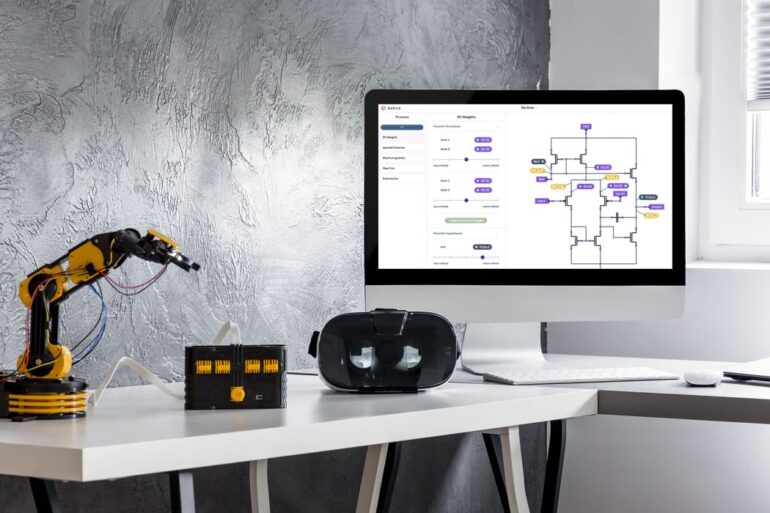Toronto-based Astrus, which uses artificial intelligence (AI) to speed up the microchip design process, has announced $2.63 million USD ($3.6 million CAD) in funding to date with significant backing by Khosla Ventures.
Founded in January by CEO Brad Moon and CTO Zeyi Wang, Astrus initially raised $275,000 USD ($376,000 CAD) in February, and secured an additional $2.4 million USD ($3.3 million CAD) in September.
The startup is looking to apply AI to the microchip design process, which it says contains two parts: digital and analog circuits. While the digital design process is largely automated, Astrus says its application of AI will speed up the time-consuming process of designing analog microchip layouts.
Astrus has a team of advisors that includes former Samsung vice president of semiconductors JD Lau, former GlobalFoundries CTO Pirooz Parvarandeh, and co-founder of Untether AI Raymond Chik.
“Having built the bulk of my career on analog and custom IC design for three decades, I know first-hand the [insatiable] need to improve the efficiency of making circuit layouts,” Chik said in a statement. “Astrus’ application of deep reinforcement learning may finally be the solution to the sought-after layout problem”
Chik contributed $15,000 USD to Astrus’ $275,000 USD raise in February, which was co-led by Khosla Ventures and 1517 Fund’s respective $100,000 USD investments, and additional participation from RiSC Capital.
Khosla Ventures invested $1.5 million USD more into Astrus in September. Other participants in the September fundraise include HOF Capital, MVP Ventures, Alumni Ventures, and Plug and Play Ventures.
Astrus declined to disclose the breakdown of equity and debt in the transactions, as well as the company’s post-money valuation.
The company says its platform can read schematics and required parameters from a microchip designer’s software and database. Designers can tell Astrus what to prioritize, import a pin map, and request a certain number of unique layouts. Astrus then delivers optimized layouts in minutes to hours, following which a designer can make tweaks as needed.
Astrus says the microchip design process is usually a back-and-forth process between design teams that can take weeks to complete.
Moon came to Astrus after working directly under Applyboard CEO Martin Basiri. Moon says he led early product discovery for ApplyBoard, while Wang previously worked in a research group that laid the foundations for AlphaGo, the first computer program to defeat a professional human Go player.
Astrus is looking to use the funding to hire additional members to its team, including a product designer, software engineer, and an analog-integrated circuit designer.
Feature image courtesy Astrus


